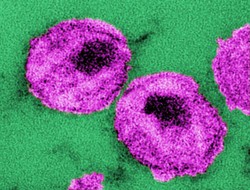Despite progress in scientific research on this disease, HIV continues to ravage communities in many poor countries. This is especially true in sub-Saharan Africa where the condition is rampant. First, this sexually transmitted infection tends to affect men and women who are heads of household [1]. Second, these adults who acquire the infection are often in the most productive years of life, and their ability to earn money declines as a result of the illness.

The Consequences of HIV on Families in Developing Countries
The human immunodeficiency virus (HIV) pandemic has affected millions of people worldwide over the last three decades, and this is particularly the case in developing countries.
Children Assume Responsibilities
As the disease commonly affects parents, their offspring in these instances have to leave school and remain at home to care for them. This entails responsibilities to feed, bathe, and dress their parents as well as manage other household chores. The family's agricultural duties become an issue as the parents are too weak to tend to crops or livestock [1, 2].
With the income loss that occurs in these scenarios, the family may have to sell tools and livestock. Medical expenses also increase over the years. Moreover, the parents with HIV infection have certain dietary needs, but the implementation of those special diets is too expensive [1, 2].
The inadequate nutrition worsens the infection, and the course of HIV progresses more quickly than in patients who obtain a well-balanced diet and medical care. These events may take place when the children are still in the childhood or adolescent years, and it is particularly devastating to their emotional and mental health as they watch their parents suffer and die [1].
Inadequate Family Income
Additional expenses accumulate when the family member succumbs to the disease as there are funerals which may last for several days. Children or other relatives who have cared for them take days from work to attend the services, and they risk job loss because of work absenteeism [1].
Even though grandparents or other relatives may assume responsibility for the children, they commonly have insufficient money to feed and support them well. In other instances, the children may become homeless and resort to commercial sex work in order to raise money [1, 2]. This places them at risk for acquisition of HIV as well as abusive relationships.
Conclusion
In conclusion, the effects of this medical condition on the family structure in developing countries such as sub-Saharan Africa are enormous, and the impact will vary with the individual household situation.
References
1. Danziger, R. (1994). The social impact of HIV/AIDS in developing countries. Social Science and Medicine, 39, 7, 905-917.
2. Dosomething.org. (2013). The effect of HIV/AIDS on society. Retrieved April 11, 2013.
3. The photograph is a thin-section transmission electron micrograph of several human immunodeficiency virus particles. Reprinted with permission from Centers for Disease Control/Dr. A. Harrison/Dr. P. Feorino.
Disclaimer
The information contained in this article is for educational purposes only and should not be used for diagnosis or to guide treatment without the opinion of a health professional. Any reader who is concerned about his or her health should contact their physician for advice.
You might also like
How to React to and Help a Loved One with CancerDealing with cancer? Learn how to react, treat and care for a loved one when ...
Do You Have Your Own Cure For Cancer?Is it possible you might be completely unaware of the cancer cure, a natural ...



 The Reality of Aspirinon 05/24/2021
The Reality of Aspirinon 05/24/2021
 An Old Microbeon 03/31/2021
An Old Microbeon 03/31/2021
 Coronavirus and Mental Illnesson 02/14/2021
Coronavirus and Mental Illnesson 02/14/2021
 Acute Ischemic Strokeon 12/25/2020
Acute Ischemic Strokeon 12/25/2020


Comments